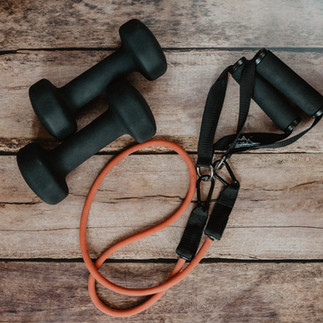Boost your Immune System
- Shannon George

- Jan 9, 2022
- 4 min read
Perhaps there has never been a greater need in recent history for a strong, functional immune system than now. It is the first and most important line of defense against viruses, colds, flu, and germs in your body.
Check out the key things you can do to boost your immune system. A boosted immune system will help your body to more efficiently fight off the things that will make you sick.
Nutrition
Technically speaking nutrients can’t boost your immune system. What it can do is keep your body well enough to maintain a healthy immune system. When your body is malnourished or has micronutrient deficiencies it is not equipped to fight viral or bacterial infections. Six micronutrients have been identified as being significant for immune cell growth and efficiency.
Iron is a part of enzymes that are required for immune cell activity. Red meat, beans, almonds, and fortified breakfast cereals are all good sources.
Vitamin A guards against infections by maintaining the health of the skin and tissues in the mouth, stomach, intestines, and respiratory system. Vitamin A can be found in orange and red fruits, as well as vegetables such as carrots, apricots, and bell peppers.
Vitamin C promotes the development, activity, and circulation of white blood cells as well as the creation of antibodies. Consume citrus fruits such as oranges, grapefruit, strawberries, and tomatoes for Vitamin C.
Vitamin D aids in the regulation of antimicrobial proteins, which may directly destroy bacteria. Sunlight, fatty seafood like salmon, egg yolks, and fortified dairy are good sources of Vitamin D.
Vitamin E serves as an antioxidant to protect the integrity of cell membranes from free radical damage. For Vitamin E stock up and eat seeds, nuts, vegetable oils, and peanut butter.
Zinc is required the body's immunological response. Zinc can be found in meats, whole grains, milk, seeds, and nuts.
Quality Sleep
A tired body means a tired immune system. Just like when you are tired you can’t function at peak performance neither can your immune system.
According to new research, scientists revealed that getting enough sleep might help your body's T cells fight illness. A specific sort of white blood cell. T cells are immune cells that grow from stem cells in the bone marrow. They assist to defend the body from infection and may aid in the fight against cancer. This is accomplished by the enhancement of T cells' capacity to attach to and kill cells infected with viruses and other pathogens. The Mayo Clinic suggests six steps to ensure better quality sleep.
Keep a routine sleep schedule
Avoid going to bed overly full or hungry.
Your bedroom should be a calm relaxing place
Naps should be no more than 30 minutes
Exercise regularly
Destress before bed
Skip toxins like tobacco and alcohol
Nicotine found in tobacco and cigarettes suppresses the immune system.
Alcohol inhibits the immune system's ability to protect the body against dangerous pathogens. Alcohol disrupts the immune cells and tiny hairs in the lungs, which are responsible for removing germs from our lungs and air passages. "If the cells lining a person's airway are damaged by alcohol, then viral particles, such as COVID-19, gain access more easily, causing immune cells, which fight infection, to work less well, leading to increased overall risks of more severe diseases as well as complications," said Dr. E. Jennifer Edelman, a Yale Medicine addiction medicine specialist.
Gut Health
Did you know that your stomach contains up to 80% of your body's immune cells? You can keep your immune system healthy by giving it a healthy combination of bacteria and probiotics on a regular basis. The microbes in the gut work in tandem with the immune system. The gut microbiota, for example, functions as both a gatekeeper and a trainer. It teaches T-cells, which are immune cells, how to distinguish between foreign chemicals and our own tissue. Changes in these gut microbial communities have recently been shown to weaken the immune response, rendering it unable to distinguish between foreign pathogens and our own. When everything in the stomach is operating correctly, the gut sends signals that stimulate the healthy proliferation of immune-fighting cells.
Exercise
Being physically active vastly boosts your body's ability to respond to infection.
According to research, exercise may help remove germs from the lungs and airways. This may reduce your chances of getting a cold, the flu, or another ailment.
Antibodies and white blood cells alter as a result of exercise. With exercise, these antibodies or white blood cells cycle more quickly, allowing them to identify infections quicker.
Infection may be inhibited by the increase in body temperature during and immediately after exercise. The spike in temperature, similar to what occurs when you have a fever, may help the body fight infection better.
It is commonly understood that stress may raise the likelihood of illness. Exercise is also known to inhibit the release of stress hormones in the body. Exercise to lower stress hormones reduces your body's susceptibility to sickness.
It is easier said than done to strengthen your immune system. While there are particular actions you can take to give your immune system the advantages it needs to work at its best, the most essential thing you can do to defend yourself from harmful viruses and bugs is to make sure you're providing your body precisely what it requires. This includes sleep, exercise, a balanced diet, and the daily dosage of vital micronutrients. Your way of life and the choices you make for your body on a daily basis will have an impact on how effectively your immune system defends you. Ultimately, changing bad behaviors with conscious practices that benefit, grow, and defend your body will keep you healthy and strong enough to withstand illness.










Comments